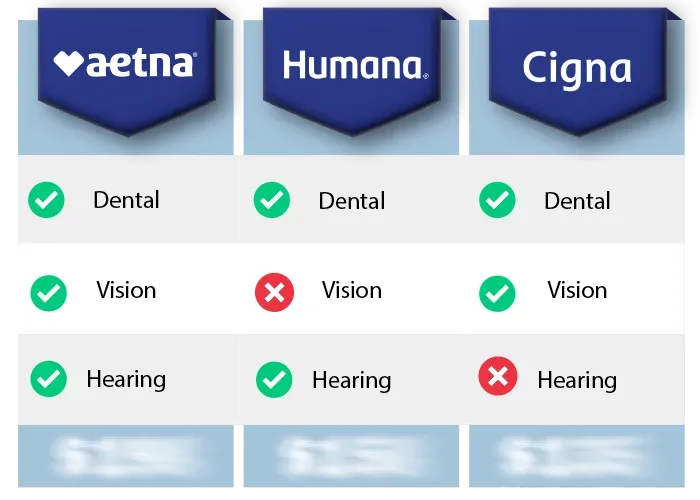
Hearing Aid Medicare: Navigating Your Options and Coverage
Hearing Aid Medicare: Navigating Your Options and Coverage
Hearing loss is a prevalent issue, particularly among the older population, making the topic of hearing aid coverage under Medicare a vital one to explore. Many individuals depend on Medicare for their health care needs, and understanding how hearing aids are covered is crucial. This article delves into the intricate details of hearing aid coverage, the types of hearing aids available, alternative financing options, and tips on choosing the right hearing aid.
Understanding Medicare’s Coverage for Hearing Aids
Medicare is a federally funded program that provides health insurance to individuals aged 65 and older, as well as certain younger individuals with disabilities. However, when it comes to hearing aids and exams for fitting them, Medicare Part B (medical insurance) does not cover these costs. This means that you are responsible for 100% of the cost of your hearing aids and exams.
The Role of Medicare Advantage Plans
While Original Medicare doesn’t cover hearing aids, some Medicare Advantage Plans (Part C) do offer coverage. Medicare Advantage Plans are offered by private companies that contract with Medicare to provide Part A and Part B benefits. Many of these plans offer additional coverage, including for hearing aids. It is essential to compare different plans in your area to determine which one provides the best coverage for hearing aids.
Types of Hearing Aids and Their Costs
Hearing aids come in various styles and technology levels, impacting their price. The cost can range from hundreds to several thousand dollars per ear. Here is a breakdown of different types of hearing aids:
Behind-the-Ear (BTE) Hearing Aids
BTE hearing aids sit behind the ear and are connected to an ear mold that fits inside the outer ear. They are among the most common types of hearing aids and are suitable for people of all ages and those with almost any type of hearing loss.
In-the-Ear (ITE) Hearing Aids
ITE hearing aids fit completely inside the outer ear and are used for mild to severe hearing loss. Their larger size allows for more features and is easier to handle.
In-the-Canal (ITC) and Completely-in-Canal (CIC) Hearing Aids
ITC and CIC hearing aids are smaller and fit partly or completely into the ear canal. They are less visible but might have fewer features due to their size. They are suitable for mild to moderately severe hearing loss.
Alternative Financing Options
If your Medicare Advantage Plan does not cover the cost of hearing aids, or if you are on Original Medicare, there are alternative financing options available:
Medicaid
In some states, Medicaid covers the cost of hearing aids. Eligibility and benefits vary by state, so it’s important to check with your state’s Medicaid program.
Nonprofit Organizations
There are several nonprofit organizations that provide financial assistance for hearing aids to those in need.
Payment Plans and Financing
Some hearing care providers offer payment plans or financing options to help spread out the cost of hearing aids.
Choosing the Right Hearing Aid
Selecting the right hearing aid is a crucial decision, and there are several factors to consider:
Audiologist Consultation
An audiologist can assess your hearing, help you understand your needs, and recommend suitable hearing aids.
Trial Periods and Warranties
Ask about trial periods to test the hearing aids and inquire about warranties for maintenance and repairs.
Additional Features
Consider any additional features that might be beneficial for you, such as noise reduction, directional microphones, and rechargeable batteries.
Conclusion
Navigating the world of hearing aids and Medicare can be challenging, but understanding your options is the first step towards finding a solution that meets your needs. While Medicare may not cover the cost of hearing aids, alternative options such as Medicare Advantage Plans, Medicaid, nonprofit organizations, and payment plans can provide the financial support you need. Additionally, choosing the right type of hearing aid and utilizing trial periods can ensure you find the most comfortable and effective solution for your hearing needs. With the right information and support, managing hearing loss and finding affordable hearing aids is possible.

Copyright © 2025 Senior Benefits Guide All Rights Reserved.
204 Church St Suite 1A, Boonton NJ 07005
Disclaimer: This website is not affiliated with the Medicare/Medicaid program or any other government entity. The information provided on this website is for informational purposes only. It is not intended to be, nor does it constitute any kind of financial advice. Please seek advice from a qualified professional prior to making any financial decisions based on the information provided. This website acts as an independent digital media & advertising publisher. This webpage is formatted as an advertorial. An advertorial is an advertisement that is written in an editorial news format. PLEASE BE AWARE THAT THIS IS AN ADVERTISEMENT AND NOT AN ACTUAL NEWS ARTICLE, BLOG, OR CONSUMER PROTECTION UPDATE. This website MAY RECEIVE PAID COMPENSATION FOR CLICKS OR SALES PRODUCED FROM THE CONTENT FOUND ON THIS WEBPAGE. This compensation may affect which companies are displayed, the placement of advertisements, and their order of appearance. Any information, discounts, or price quotations listed may not be applicable in your location or if certain requirements are not met. Additionally, our advertisers may have additional qualification requirements.
Our goal is to provide exceptional service. One of our agents may reach out to you to discuss your order, ask for feedback, and/or see if you need any assistance with your products, services, or plans, at the phone number you provided regardless of your do-not-call list status. You may opt-out of further contact at any time by simply telling our customer service team that you would no longer like to be contacted. In the event that our team is unable to reach you by phone, they may send you a text message letting you know that we called. Both our text messages and phone calls may be sent or connected utilizing automated software. Carrier charges may apply. You may opt-out of any future contact via text message by replying anytime with "STOP".
Copyright © 2025 All Rights Reserved.
Find Medicare Advantage Plans in 3 Easy Steps

